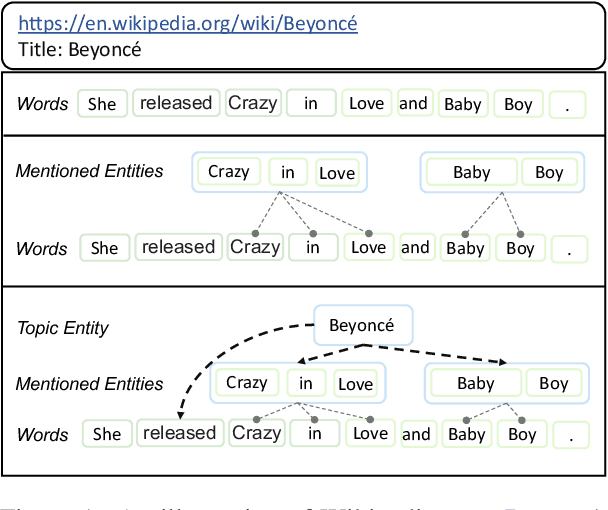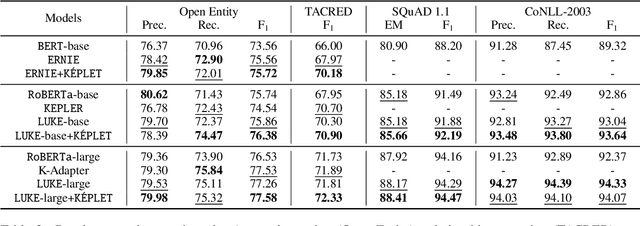KEPLET: Knowledge-Enhanced Pretrained Language Model with Topic Entity Awareness
Paper and Code
May 02, 2023



In recent years, Pre-trained Language Models (PLMs) have shown their superiority by pre-training on unstructured text corpus and then fine-tuning on downstream tasks. On entity-rich textual resources like Wikipedia, Knowledge-Enhanced PLMs (KEPLMs) incorporate the interactions between tokens and mentioned entities in pre-training, and are thus more effective on entity-centric tasks such as entity linking and relation classification. Although exploiting Wikipedia's rich structures to some extent, conventional KEPLMs still neglect a unique layout of the corpus where each Wikipedia page is around a topic entity (identified by the page URL and shown in the page title). In this paper, we demonstrate that KEPLMs without incorporating the topic entities will lead to insufficient entity interaction and biased (relation) word semantics. We thus propose KEPLET, a novel Knowledge-Enhanced Pre-trained LanguagE model with Topic entity awareness. In an end-to-end manner, KEPLET identifies where to add the topic entity's information in a Wikipedia sentence, fuses such information into token and mentioned entities representations, and supervises the network learning, through which it takes topic entities back into consideration. Experiments demonstrated the generality and superiority of KEPLET which was applied to two representative KEPLMs, achieving significant improvements on four entity-centric tasks.
 Add to Chrome
Add to Chrome Add to Firefox
Add to Firefox Add to Edge
Add to Edge